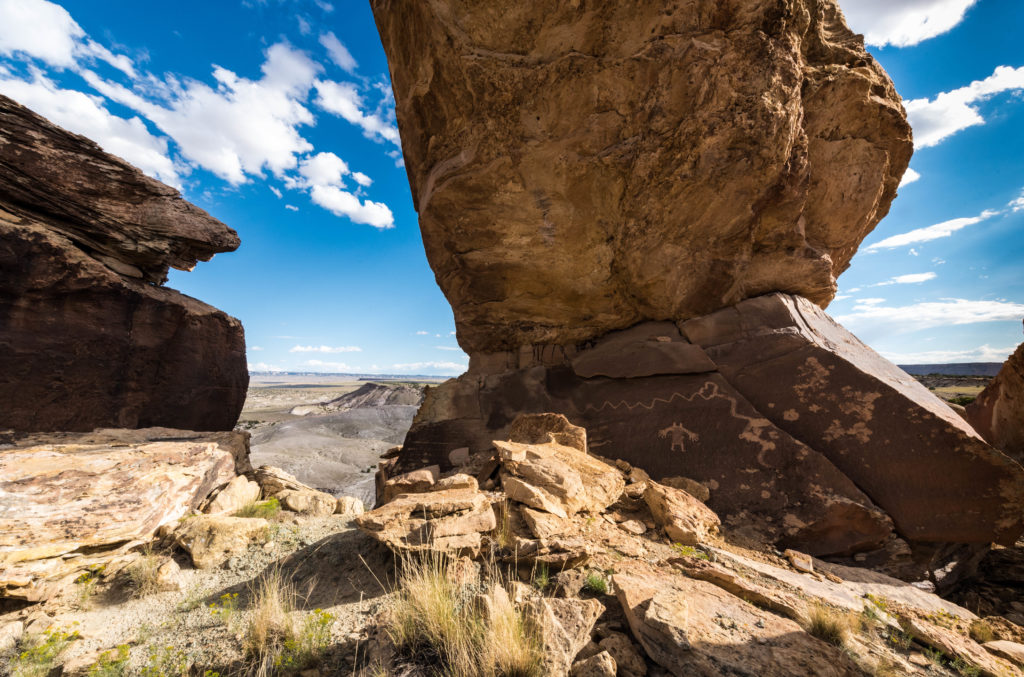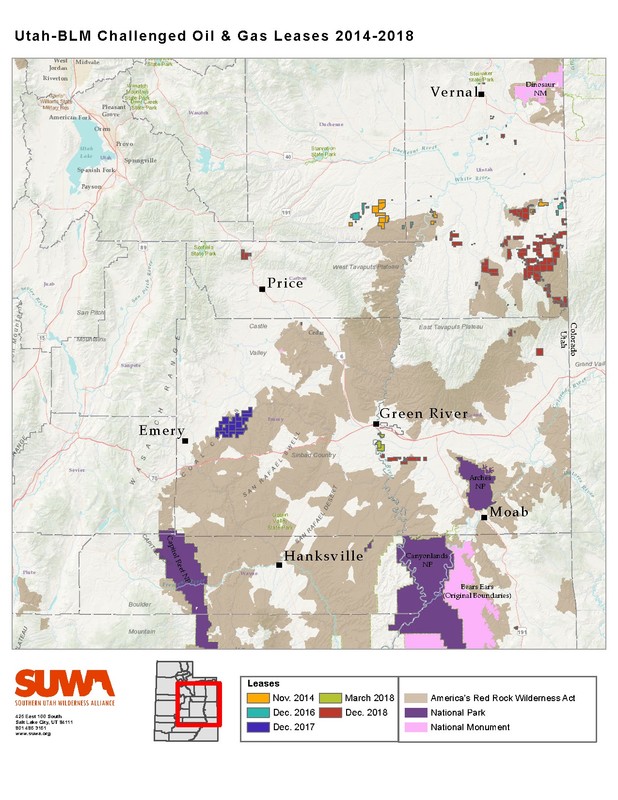SALT LAKE CITY, UT (September 12, 2019)— Conservation groups sued the Trump administration today for failing to consider the climate pollution from 130 oil and gas leases spanning 175,500 acres of public lands in Utah.

Today’s complaint, filed in U.S. District Court in Salt Lake City, says the Bureau of Land Management violated the National Environmental Policy Act by approving five lease sales from 2014 to 2018 without accounting for the climate pollution that would result from oil and gas development. It asks the court to invalidate all eight approvals and their 130 leases.
The lawsuit comes as climate scientists urge drastic cuts to greenhouse gas pollution over the coming decade. New oil and gas leases, whose production can last decades, commit public lands to more pollution. Nearly a quarter of all U.S. greenhouse gas pollution results from fossil fuel development on public lands.
“The climate crisis is being exacerbated by the BLM’s reckless and uninformed oil and gas leasing and development on public lands,” said Landon Newell, staff attorney with the Southern Utah Wilderness Alliance. “The development of these leases will push us closer to the point of no return on climate, while sacrificing some of the most wild, scenic and culturally significant public lands in America.”
Most of the challenged leases resulted from the Trump administration’s “energy dominance” agenda. In addition to slashing environmental reviews to hasten oil and gas leasing, the administration has attacked federal development and reliance on climate science in agency decisions and reports.
“Each new oil and gas lease commits us to more greenhouse gas pollution that our planet can’t afford,” said Diana Dascalu-Joffe, an attorney at the Center for Biological Diversity. “There are already more fossil fuels under development in the world than can be safely burned. New leases dangerously disregard urgent climate warnings from scientists. These leases were irresponsible and illegal, and we’re hopeful that a court will agree.”
The leases also threaten public lands and endangered species, including the Colorado pikeminnow and razorback sucker. Fracking sucks up enormous amounts of water and threatens to pollute the Colorado River and tributaries where the fish live.
“Several accidents involving water pollution have already happened on the Green River and its tributaries,” said John Weisheit, a professional river guide in eastern Utah and a representative of Living Rivers and Colorado Riverkeeper. “Combined with diminished flow volumes for these rivers, the multimillion-dollar investment already made to ensure a successful endangered fish program must not be further compromised.”
Background
Federal fossil fuel production causes about a quarter of all U.S. greenhouse gas emissions. Peer-reviewed science estimates that a federal fossil fuel leasing ban would reduce CO2 emissions by 280 million tons per year, ranking it among the most ambitious federal climate policy proposals in recent years.
Federal fossil fuels that have not yet been leased to the industry contain up to 450 billion tons of potential climate pollution. Those already leased contain up to 43 billion tons.
Existing laws provide executive authority to stop federal leasing on public lands and oceans. Hundreds of organizations have petitioned the federal government to end new onshore and offshore federal fossil fuel leasing.

